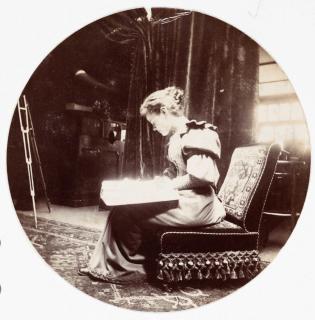One UUA Common Read, Many Strong Contenders
By Gail Forsyth-Vail
Members of the UUA Common Read selection committee read a lot of fabulous books to prepare for our mid-summer selection meeting. While we ultimately came to consensus on the 2013-14 selection, Behind the Kitchen Door, you might consider this year’s other, wonderful nominees for a book group or your personal “to-read” list:
Faitheist: How an Atheist Found Common Ground with the Religious by Chris Stedman (Beacon, 2012). This book explores the author’s journey, as a young adult, toward a secular humanism that seeks to partner with those who are religious to bring about positive change in the world. Beyond a spiritual coming of age story, it is also the author’s story of coming out in a culture that was not ready to accept his affectional orientation.
Finding Higher Ground: Adaptation in the Age of Warming by Amy Seidl (Beacon, 2011). Seidl offers practical guidance for responding to our environmental crisis. This hopeful, readable book uses biological adaptation as a guide and a metaphor and includes stories of personal and community actions that build our capacity for resilience.
The Immortal Life of Henrietta Lacks by Rebecca Skroot (Crowne, 2011). This fascinating read highlights the life of an African American tobacco farmer who died in the 1950s and whose cells, taken without her consent, became vehicles for stunning medical breakthroughs over the course of the last half century. Her children’s quest to see her recognized after her death is both a detective story and a story of the ways gender, race, and social and economic class play into whose interests prevail in the world of medical research and development.
The Rebellious Life of Mrs. Rosa Parks by Jeanne Theoharis (Beacon, 2013). Although selection committee members knew that her story was not a simple one, all of us found plenty of surprises in this biography of Rosa Parks. The author questions our tendency to mythologize social justice heroes and ignore the real, practical challenges they face. As we approach the 50th anniversary of Freedom Summer, this book take a fresh look at an iconic civil rights hero and asks what it means to be an everyday worker for justice.
The Righteous Mind: Why Good People are Divided by Politics and Religion by Jonathan Haidt (Vintage, 2013). Many express distress at our increasingly polarized public discourse while at the same time holding firmly to their own notions of right and wrong, good and bad. Moral psychologist Haidt investigates why we have arrived at our current divisions and how we might begin to move beyond them.
Soul Repair: Recovering from Moral Injury after War by Rita Nakashima-Brock and Gabriella Lettini (Beacon, 2012). The authors ask: How do those who are asked to fight in wars on our behalf recover from what they have experienced? How is moral injury different from PTSD? How can we care for people, both military and civilian, who have been forced to make heart-wrenching choices in times of war? This compelling book grounded in personal stories supports us to pay attention to our ministries to military personnel, veterans, and their families.

